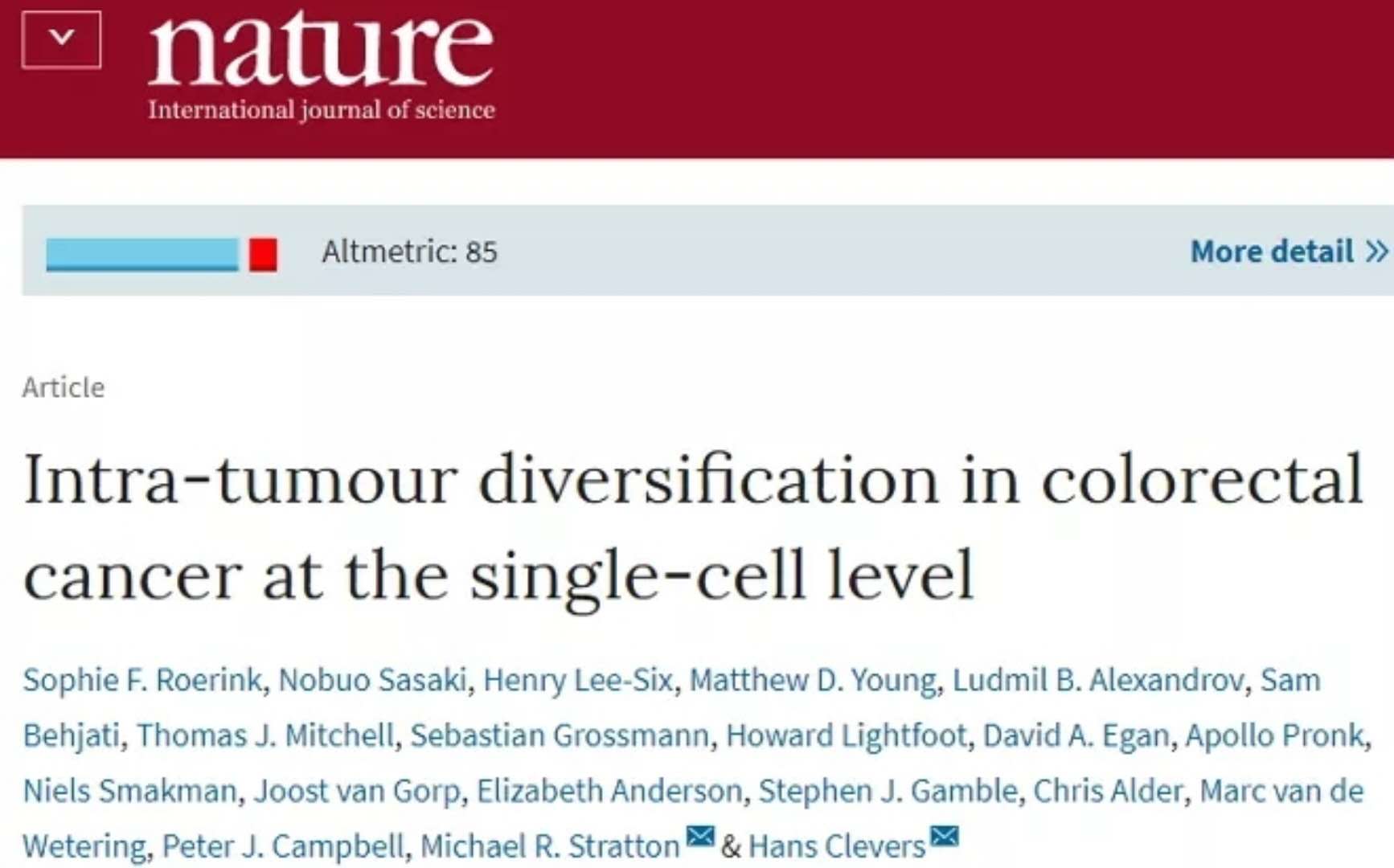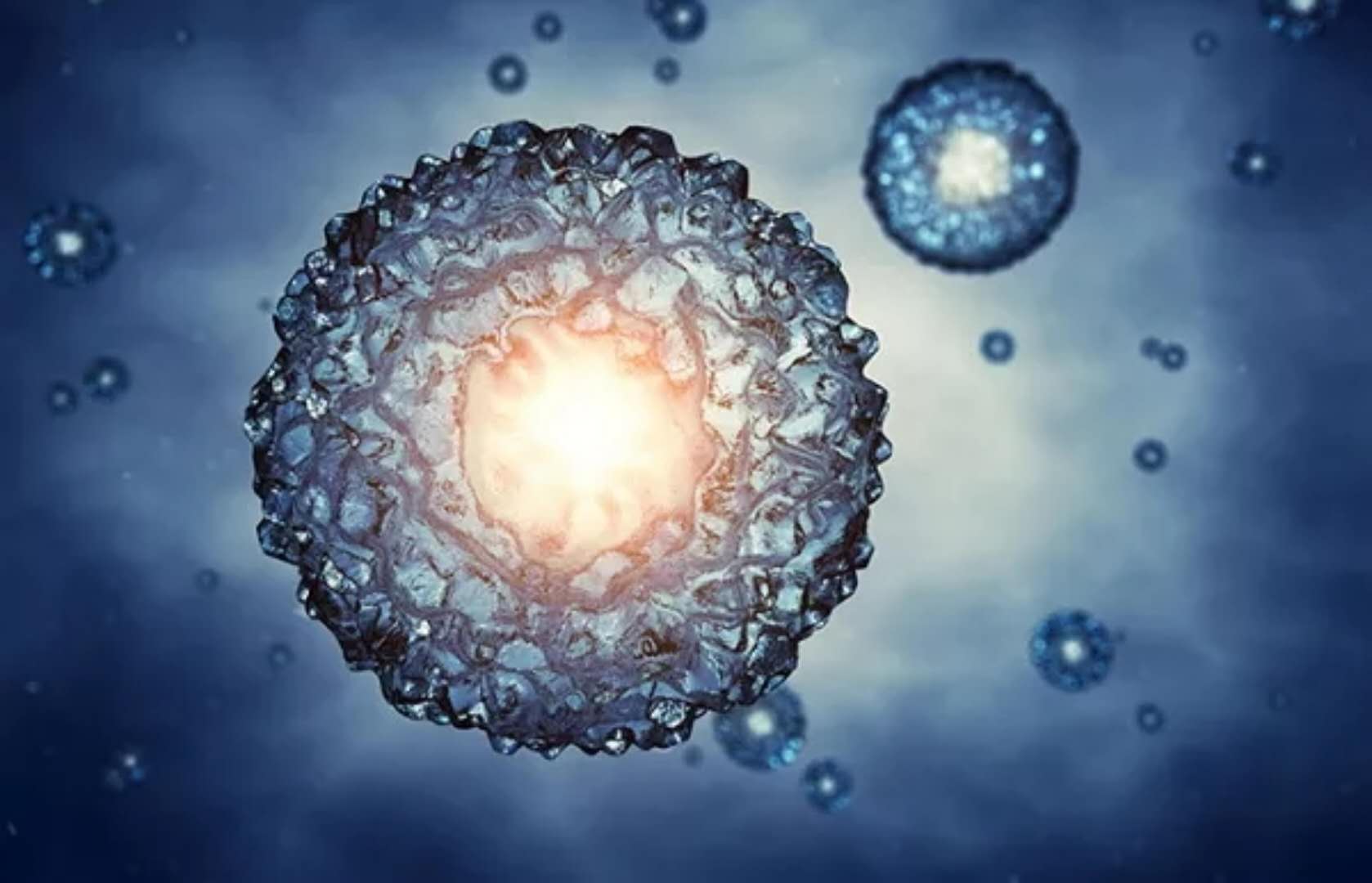New evidence! Nature: Every colorectal cancer cell is different April 16, 2018 Source: Biological Exploration of: Flora Tumor tissue originates from one cell. During the process of infinite expansion of tumor cells, cells acquire genetic and phenotypic information different from other cells. In a recent study, scientists found that the rate of mutations in colorectal cancer cells was significantly higher than in normal cells, and that every cell in a tumor tissue was unique. Doi:10.1038/s41586-018-0024-3 The study, published online April 11 in the journal Nature, was performed by scientists from the Wellcome Sanger Institute in the UK and the Hubrecht Institute in the Netherlands. They used the latest single-cell, organic techniques to analyze the mutation process of colorectal cancer. Colorectal cancer is the third most common cancer in the world, accounting for 10% of all cancer cases. In the UK alone, more than 41,000 people are diagnosed with this disease each year. Studies have shown that colorectal cancer contains subclones that respond differently to treatment, but to date, scientists have not been able to address the extent and characteristics of intratumoral diversity. In the latest study, the team obtained tumor tissue and surrounding healthy intestinal crypts from three patients with colorectal cancer, isolated single cells, and developed organoids based on single cells, namely the 3D mini. Intestinal tissue. Professor Hans Clevers of the Hubrecht Institute in the Netherlands, one of the authors of the article, said: "Original organs have never been used to study single cancer cells. Nobuo Sasaki in the laboratory isolated multiple single cells from tumors and cultivated them in vitro. Organs. This gives us the possibility to study cancer mutations at the single-cell level—by comparing the differences between normal cells and cancerous cells from the same tissue to resolve the process of cancer development and progression. Image source: 16sucai Studies have revealed that colorectal cancer cells exhibit a wide range of mutational diversity and that the mutation rate is several times greater than normal intestinal cells. At the same time, each cell's genetic information in intestinal cancer tissue is different. The study also showed that the mutation process of tumor cells is significantly different from healthy cells. It is worth noting that the mutation rate has changed many years before the diagnosis of cancer. Researchers believe that this time window can provide clues for future diagnosis and is expected to be a critical period for detecting an increase in early cell mutation rates. The author of the article, Professor Sir Mike Stratton of the Wellcome Sanger Institute, said the study could provide us with details of how cancer occurs. By comparing the mutation patterns of individual healthy cells and tumor cells, we can understand the state of the mutation and find the cause of the mutation. In addition, understanding the origins of mutations helps us avoid possible risk factors and ultimately reduce the incidence of cancer. References: 1) Intra-tumour diversification in colorectal cancer at the single-cell level Bacillus Coagulans,Bacillus Coagulans Powder,Bacillus Coagulans Probiotic,Bacillus Coagulans Supplement Biodep Biotechnology Co. ,Ltd. , https://www.mbioda.com

New evidence! Nature: Every colorectal cancer cell is different
